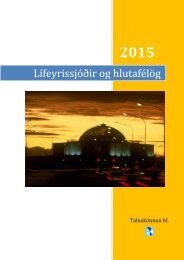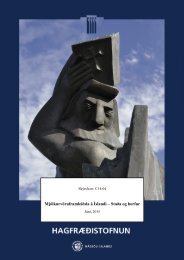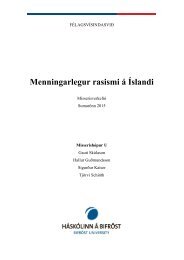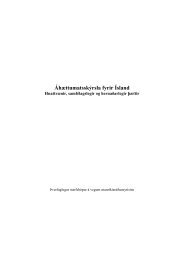- Page 1 and 2:
H U M A N R I G H T S W A T C H WOR
- Page 4:
Human Rights Watch defends the righ
- Page 8:
WORLD REPORT 2016 TABLE OF CONTENTS
- Page 12:
WORLD REPORT 2016 HUMAN RIGHTS WATC
- Page 16:
WORLD REPORT 2016 HUMAN RIGHTS WATC
- Page 20:
WORLD REPORT 2016 HUMAN RIGHTS WATC
- Page 24:
WORLD REPORT 2016 HUMAN RIGHTS WATC
- Page 28:
WORLD REPORT 2016 HUMAN RIGHTS WATC
- Page 32:
WORLD REPORT 2016 HUMAN RIGHTS WATC
- Page 36:
WORLD REPORT 2016 HUMAN RIGHTS WATC
- Page 40:
WORLD REPORT 2016 HUMAN RIGHTS WATC
- Page 44:
WORLD REPORT 2016 HUMAN RIGHTS WATC
- Page 48:
WORLD REPORT 2016 HUMAN RIGHTS WATC
- Page 52:
WORLD REPORT 2016 HUMAN RIGHTS WATC
- Page 56:
WORLD REPORT 2016 HUMAN RIGHTS WATC
- Page 60:
WORLD REPORT 2016 HUMAN RIGHTS WATC
- Page 64:
WORLD REPORT 2016 HUMAN RIGHTS WATC
- Page 68:
WORLD REPORT 2016 HUMAN RIGHTS WATC
- Page 72:
WORLD REPORT 2016 HUMAN RIGHTS WATC
- Page 76:
WORLD REPORT 2016 HUMAN RIGHTS WATC
- Page 80:
WORLD REPORT 2016 HUMAN RIGHTS WATC
- Page 84:
WORLD REPORT 2016 HUMAN RIGHTS WATC
- Page 88:
WORLD REPORT 2016 HUMAN RIGHTS WATC
- Page 92:
WORLD REPORT 2016 HUMAN RIGHTS WATC
- Page 96:
WORLD REPORT 2016 HUMAN RIGHTS WATC
- Page 100:
WORLD REPORT 2016 HUMAN RIGHTS WATC
- Page 104:
WORLD REPORT 2016 HUMAN RIGHTS WATC
- Page 108:
WORLD REPORT 2016 HUMAN RIGHTS WATC
- Page 112:
WORLD REPORT 2016 HUMAN RIGHTS WATC
- Page 116:
WORLD REPORT 2016 HUMAN RIGHTS WATC
- Page 120:
WORLD REPORT 2016 HUMAN RIGHTS WATC
- Page 124:
WORLD REPORT 2016 HUMAN RIGHTS WATC
- Page 128:
WORLD REPORT 2016 HUMAN RIGHTS WATC
- Page 132:
WORLD REPORT 2016 HUMAN RIGHTS WATC
- Page 136:
WORLD REPORT 2016 HUMAN RIGHTS WATC
- Page 140:
WORLD REPORT 2016 HUMAN RIGHTS WATC
- Page 144:
WORLD REPORT 2016 HUMAN RIGHTS WATC
- Page 148:
WORLD REPORT 2016 HUMAN RIGHTS WATC
- Page 152:
WORLD REPORT 2016 HUMAN RIGHTS WATC
- Page 156:
WORLD REPORT 2016 HUMAN RIGHTS WATC
- Page 160:
WORLD REPORT 2016 HUMAN RIGHTS WATC
- Page 164:
WORLD REPORT 2016 HUMAN RIGHTS WATC
- Page 168:
WORLD REPORT 2016 HUMAN RIGHTS WATC
- Page 172:
WORLD REPORT 2016 HUMAN RIGHTS WATC
- Page 176:
WORLD REPORT 2016 HUMAN RIGHTS WATC
- Page 180:
WORLD REPORT 2016 HUMAN RIGHTS WATC
- Page 184:
WORLD REPORT 2016 HUMAN RIGHTS WATC
- Page 188:
WORLD REPORT 2016 HUMAN RIGHTS WATC
- Page 192:
WORLD REPORT 2016 HUMAN RIGHTS WATC
- Page 196:
WORLD REPORT 2016 HUMAN RIGHTS WATC
- Page 200:
WORLD REPORT 2016 HUMAN RIGHTS WATC
- Page 204:
WORLD REPORT 2016 HUMAN RIGHTS WATC
- Page 208:
WORLD REPORT 2016 HUMAN RIGHTS WATC
- Page 212:
WORLD REPORT 2016 HUMAN RIGHTS WATC
- Page 216:
WORLD REPORT 2016 HUMAN RIGHTS WATC
- Page 220:
WORLD REPORT 2016 HUMAN RIGHTS WATC
- Page 224:
WORLD REPORT 2016 HUMAN RIGHTS WATC
- Page 228:
WORLD REPORT 2016 HUMAN RIGHTS WATC
- Page 232:
WORLD REPORT 2016 HUMAN RIGHTS WATC
- Page 236:
WORLD REPORT 2016 HUMAN RIGHTS WATC
- Page 240:
WORLD REPORT 2016 HUMAN RIGHTS WATC
- Page 244:
WORLD REPORT 2016 HUMAN RIGHTS WATC
- Page 248:
WORLD REPORT 2016 HUMAN RIGHTS WATC
- Page 252:
WORLD REPORT 2016 HUMAN RIGHTS WATC
- Page 256:
WORLD REPORT 2016 HUMAN RIGHTS WATC
- Page 260:
WORLD REPORT 2016 HUMAN RIGHTS WATC
- Page 264:
WORLD REPORT 2016 HUMAN RIGHTS WATC
- Page 268:
WORLD REPORT 2016 HUMAN RIGHTS WATC
- Page 272:
WORLD REPORT 2016 HUMAN RIGHTS WATC
- Page 276:
WORLD REPORT 2016 HUMAN RIGHTS WATC
- Page 280:
WORLD REPORT 2016 HUMAN RIGHTS WATC
- Page 284:
WORLD REPORT 2016 HUMAN RIGHTS WATC
- Page 288:
WORLD REPORT 2016 HUMAN RIGHTS WATC
- Page 292:
WORLD REPORT 2016 HUMAN RIGHTS WATC
- Page 296:
WORLD REPORT 2016 HUMAN RIGHTS WATC
- Page 300:
WORLD REPORT 2016 HUMAN RIGHTS WATC
- Page 304:
WORLD REPORT 2016 HUMAN RIGHTS WATC
- Page 308:
WORLD REPORT 2016 HUMAN RIGHTS WATC
- Page 312:
WORLD REPORT 2016 HUMAN RIGHTS WATC
- Page 316:
WORLD REPORT 2016 HUMAN RIGHTS WATC
- Page 320:
WORLD REPORT 2016 HUMAN RIGHTS WATC
- Page 324:
WORLD REPORT 2016 HUMAN RIGHTS WATC
- Page 328:
WORLD REPORT 2016 HUMAN RIGHTS WATC
- Page 332:
WORLD REPORT 2016 HUMAN RIGHTS WATC
- Page 336:
WORLD REPORT 2016 HUMAN RIGHTS WATC
- Page 340:
WORLD REPORT 2016 HUMAN RIGHTS WATC
- Page 344:
WORLD REPORT 2016 HUMAN RIGHTS WATC
- Page 348:
WORLD REPORT 2016 HUMAN RIGHTS WATC
- Page 352:
WORLD REPORT 2016 HUMAN RIGHTS WATC
- Page 356:
WORLD REPORT 2016 HUMAN RIGHTS WATC
- Page 360:
WORLD REPORT 2016 HUMAN RIGHTS WATC
- Page 364:
WORLD REPORT 2016 HUMAN RIGHTS WATC
- Page 368:
WORLD REPORT 2016 HUMAN RIGHTS WATC
- Page 372:
WORLD REPORT 2016 HUMAN RIGHTS WATC
- Page 376:
WORLD REPORT 2016 HUMAN RIGHTS WATC
- Page 380:
WORLD REPORT 2016 HUMAN RIGHTS WATC
- Page 384:
WORLD REPORT 2016 HUMAN RIGHTS WATC
- Page 388:
WORLD REPORT 2016 HUMAN RIGHTS WATC
- Page 392:
WORLD REPORT 2016 HUMAN RIGHTS WATC
- Page 396:
WORLD REPORT 2016 HUMAN RIGHTS WATC
- Page 400:
WORLD REPORT 2016 HUMAN RIGHTS WATC
- Page 404:
WORLD REPORT 2016 HUMAN RIGHTS WATC
- Page 408:
WORLD REPORT 2016 HUMAN RIGHTS WATC
- Page 412:
WORLD REPORT 2016 HUMAN RIGHTS WATC
- Page 416:
WORLD REPORT 2016 HUMAN RIGHTS WATC
- Page 420:
WORLD REPORT 2016 HUMAN RIGHTS WATC
- Page 424:
WORLD REPORT 2016 HUMAN RIGHTS WATC
- Page 428:
WORLD REPORT 2016 HUMAN RIGHTS WATC
- Page 432:
WORLD REPORT 2016 HUMAN RIGHTS WATC
- Page 436:
WORLD REPORT 2016 HUMAN RIGHTS WATC
- Page 440:
WORLD REPORT 2016 HUMAN RIGHTS WATC
- Page 444:
WORLD REPORT 2016 HUMAN RIGHTS WATC
- Page 448:
WORLD REPORT 2016 HUMAN RIGHTS WATC
- Page 452:
WORLD REPORT 2016 HUMAN RIGHTS WATC
- Page 456:
WORLD REPORT 2016 HUMAN RIGHTS WATC
- Page 460:
WORLD REPORT 2016 HUMAN RIGHTS WATC
- Page 464:
WORLD REPORT 2016 HUMAN RIGHTS WATC
- Page 468:
WORLD REPORT 2016 HUMAN RIGHTS WATC
- Page 472: WORLD REPORT 2016 HUMAN RIGHTS WATC
- Page 476: WORLD REPORT 2016 HUMAN RIGHTS WATC
- Page 480: WORLD REPORT 2016 HUMAN RIGHTS WATC
- Page 484: WORLD REPORT 2016 HUMAN RIGHTS WATC
- Page 488: WORLD REPORT 2016 HUMAN RIGHTS WATC
- Page 492: WORLD REPORT 2016 HUMAN RIGHTS WATC
- Page 496: WORLD REPORT 2016 HUMAN RIGHTS WATC
- Page 500: WORLD REPORT 2016 HUMAN RIGHTS WATC
- Page 504: WORLD REPORT 2016 HUMAN RIGHTS WATC
- Page 508: WORLD REPORT 2016 HUMAN RIGHTS WATC
- Page 512: WORLD REPORT 2016 HUMAN RIGHTS WATC
- Page 516: WORLD REPORT 2016 HUMAN RIGHTS WATC
- Page 520: WORLD REPORT 2016 HUMAN RIGHTS WATC
- Page 526: WORLD REPORT 2016 HUMAN RIGHTS WATC
- Page 530: WORLD REPORT 2016 HUMAN RIGHTS WATC
- Page 534: WORLD REPORT 2016 HUMAN RIGHTS WATC
- Page 538: WORLD REPORT 2016 HUMAN RIGHTS WATC
- Page 542: WORLD REPORT 2016 HUMAN RIGHTS WATC
- Page 546: WORLD REPORT 2016 HUMAN RIGHTS WATC
- Page 550: WORLD REPORT 2016 HUMAN RIGHTS WATC
- Page 554: WORLD REPORT 2016 HUMAN RIGHTS WATC
- Page 558: WORLD REPORT 2016 HUMAN RIGHTS WATC
- Page 562: WORLD REPORT 2016 HUMAN RIGHTS WATC
- Page 566: WORLD REPORT 2016 HUMAN RIGHTS WATC
- Page 570: WORLD REPORT 2016 HUMAN RIGHTS WATC
- Page 574:
WORLD REPORT 2016 HUMAN RIGHTS WATC
- Page 578:
WORLD REPORT 2016 HUMAN RIGHTS WATC
- Page 582:
WORLD REPORT 2016 HUMAN RIGHTS WATC
- Page 586:
WORLD REPORT 2016 HUMAN RIGHTS WATC
- Page 590:
WORLD REPORT 2016 HUMAN RIGHTS WATC
- Page 594:
WORLD REPORT 2016 HUMAN RIGHTS WATC
- Page 598:
WORLD REPORT 2016 HUMAN RIGHTS WATC
- Page 602:
WORLD REPORT 2016 HUMAN RIGHTS WATC
- Page 606:
WORLD REPORT 2016 HUMAN RIGHTS WATC
- Page 610:
WORLD REPORT 2016 HUMAN RIGHTS WATC
- Page 614:
WORLD REPORT 2016 HUMAN RIGHTS WATC
- Page 618:
WORLD REPORT 2016 HUMAN RIGHTS WATC
- Page 622:
WORLD REPORT 2016 HUMAN RIGHTS WATC
- Page 626:
WORLD REPORT 2016 HUMAN RIGHTS WATC
- Page 630:
WORLD REPORT 2016 HUMAN RIGHTS WATC
- Page 634:
WORLD REPORT 2016 HUMAN RIGHTS WATC
- Page 638:
WORLD REPORT 2016 HUMAN RIGHTS WATC
- Page 642:
WORLD REPORT 2016 HUMAN RIGHTS WATC
- Page 646:
WORLD REPORT 2016 HUMAN RIGHTS WATC
- Page 650:
WORLD REPORT 2016 HUMAN RIGHTS WATC
- Page 654:
WORLD REPORT 2016 HUMAN RIGHTS WATC
- Page 658:
WORLD REPORT 2016 HUMAN RIGHTS WATC
- Page 662:
WORLD REPORT 2016 HUMAN RIGHTS WATC
- Page 666:
WORLD REPORT 2016 HUMAN RIGHTS WATC
- Page 670:
WORLD REPORT 2016 HUMAN RIGHTS WATC
- Page 674:
H U M A N R I G H T S W A T C H WOR










